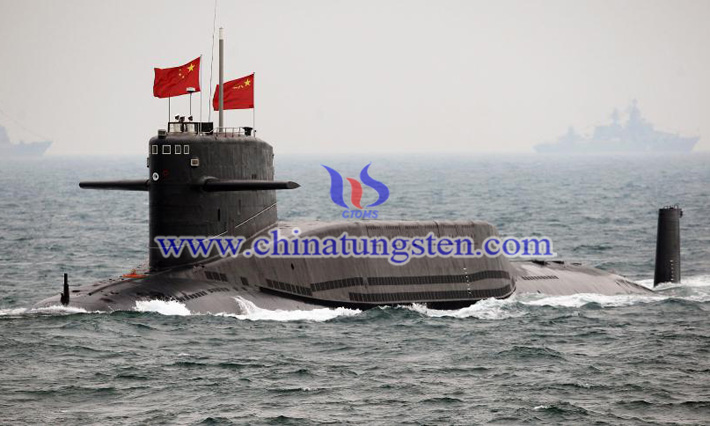The Global Rare Earth Industry Will be Changed by China’s Movement
- Details
- Category: Rare Earth News
- Published on Friday, 16 November 2018 09:17
The big thing that has happened or is likely to happen in the second half of the year is that China wants or will cut rare earth production. Some experts said that this move by China may incite the global rare earth industry. Things are like this. Recently, Adamas Business Company said that China will reduce its rare earth production in the second half of this year and will control it at 45,000 tons. According to data tracking in previous years, this will be the lowest point of China's rare earth production in more than five years. This is likely to reduce China's rare earth exports, which in turn leads to rising rare earth prices. As a result, manufacturers may be forced to look for alternatives to rare earth supplies on a global scale, as there is little research on rare earth substitutes. Therefore, analysts believe that this may be more likely to be US companies, especially the US military, because they have no other source of supply, and the consumption of rare earths is still very large.
Adamas Intelligence is a business company based in Amsterdam, the Netherlands, which closely tracks the rare earth industry. According to Reuters, Adamas Intelligence said that in the second half of 2018, China will cut 36% of rare earth separation and smelting quotas, mainly to provide sufficient supply to Chinese domestic buyers to better control the market.

Next, let's take a look at the knowledge of rare earths to better understand why China's reduction of rare earth production will have a big impact on the US military and global manufacturers.
Rare earth is a general term for 17 elements. They have similar chemical and physical properties and are widely used in military, technology and many other fields. Although rare earth is not a household name, it is not a little-known chemical element. For example, the bismuth element can be used to form the “magnetic king” – NdFeB. In fact, it is a magnet, of course. Its magnetic properties are superior to those of our usual magnets. NdFeB is mainly used in applications such as permanent magnet propulsion motors.
Can the permanent magnet propulsion motor dry up? This has to start from an official announcement of "China Shipbuilding Heavy Industry". I don't know if you have noticed that China has successfully broken through the "permanent magnet" technology. Since then, it has completely independent intellectual property rights for permanent magnet propulsion motor loading and has been successfully tested.

What is the importance of this new permanent magnet propulsion motor? As you may know as a military fan, noise is a big bogey for submarines. If the mute effect of the submarine drive is not good, it will be easily attacked by the other party. For submarine drives, electric drives are much quieter than mechanical drives. Of course, there are many types of electric drives, but the permanent magnet propulsion motor drives are the quietest. The new permanent magnet propulsion motor developed in China not only has a low noise close to the background sound of the seabed, but also has a small volume. The point is that the new permanent magnet propulsion motor can reach 40 megawatts of power, while the United States is still studying more than 30 megawatts of permanent magnet motors in the same period and has not succeeded! In other words, China has successfully achieved the overtaking of the curve on this technology, catching up with the United States! Among them, the researchers are really indispensable, the importance of high-performance rare earth permanent magnet materials is self-evident!
So? The US military needs more rare earths to speed up the development of permanent magnet propulsion motors to equip its submarines. In addition, the US military also uses other rare earth elements such as thorium for the production of magnets that are critical to smart bomb guidance systems, as well as rare earth metal reinforcement fighters and high-tech laser weapons. According to the Pentagon report, US military equipment such as F-22, F-35, B-2, and nuclear-powered aircraft carriers are also heavily dependent on Chinese rare earths. It can be imagined that if China reduces the export of rare earths, this will make the US military worry. After all, the cost of rare earth mining in the United States is too high. It is not necessary for companies to give up buying from China and produce their own products. Moreover, even if the United States really mines rare earth mines, it will certainly be at the expense of polluting the environment.

So what is the impact on global manufacturers? This has to start with the use of rare earths. Daily common LED lights, flat-panel TVs, energy-saving light bulbs and many other electronic products, as well as electric cars and light mountain bike frames, and even lighters must add a certain amount of rare earth elements. According to the USGS report, China has supplied more than 90% of the world's rare earth demand per year over the past decade. At present, China's rare earth exports usually account for about 80% of global demand. No matter which data is more accurate, this will mean that global suppliers have to look around for 80% to 90% of the rare earth gap. It is no wonder that Adamas Intelligence claims that China’s export temperance is “frightened”.
- Rare Earth Manufacturer & Supplier, Chinatungsten Online: www.chinatungsten.com
- Tungsten News & Prices of China Tungsten Industry Association: www.ctia.com.cn
- Molybdenum News & Price: news.molybdenum.com.cn
- Tel.: 86 592 5129696; Fax: 86 592 5129797; Email: sales@chinatungsten.com



 sales@chinatungsten.com
sales@chinatungsten.com